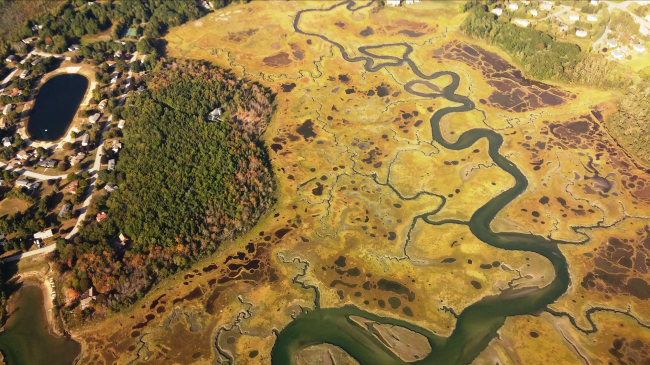Award part of efforts to reach underserved, diverse communities

A humpback whale surfaces near Maui Island. (Image credit: Hawaiian Islands Humpback Whale National Marine Sanctuary/Jason Moore)
NOAA has chosen three graduate students to receive its Dr. Nancy Foster Scholarships, representing fields such as marine biology, oceanography and maritime archaeology. The award recognizes outstanding academic achievement and encourages independent research, particularly by female and minority students.
Since the scholarship began in 2000, 17% of former Dr. Nancy Foster scholars have been minorities; the vast majority, 89%, are women. Sixty-four percent of former scholars work as professionals in a field related to NOAA mission critical sciences.
“This highly competitive scholarship program allows the next generation of NOAA scientists to grow intellectually and expand their knowledge while promoting the work and mission of the National Marine Sanctuary System,” said John Armor, director of NOAA’s Office of National Marine Sanctuaries (ONMS), which administers the awards. “It presents an unmatched opportunity to provide these young scholars with guidance in the very beginning of their careers.”
Subject to appropriations, each recipient will receive an annual stipend of $30,000 and up to $12,000 annually as an education allowance. Additionally, recipients may receive up to $10,000 to support a 4 to 6 week research collaboration at a NOAA facility. Master’s students can receive up to two years of support, and doctoral students for up to four years.
The three scholarship recipients for 2020 are:

Brijonnay Madrigal, University of Hawai`i, Mānoa. A first-generation college graduate, Brijonnay is pursuing a Ph.D. in marine biology with an emphasis on marine mammal acoustics. Her research will focus on using passive acoustic monitoring techniques to understand the potential effects of anthropogenic noise on acoustic behavior of odontocete (the “toothed whales”) in Hawaiian Islands Humpback Whale National Marine Sanctuary and Papahānaumokuākea Marine National Monument.

Sarah Hutchinson, Hawaii Pacific University. Sarah is pursuing a master’s degree in Marine Science. Her research focuses on using the seabird Wedge-tailed Shearwaters as indicators of ecologically important areas and processes in the waters within and surrounding Hawaiian Islands Humpback Whale National Marine Sanctuary.

Tamara Russell, University of California San Diego, Scripps Institution of Oceanography. Tamara is pursuing a Ph.D. in biological oceanography. Her research will focus on seabird habitat use within the California Current, specifically understanding how west coast national marine sanctuaries capture areas that are important for seabird foraging.
The scholarship program was established in memory of Nancy Foster, Ph.D., a leader in marine resource conservation, a former assistant NOAA administrator for oceanic services and coastal zone management and past director of NOAA’s National Ocean Service. Throughout her NOAA career, Dr. Foster was highly respected as a supporter of mentoring, a champion of diversity and an advocate of fair and equal treatment of all people in the workplace. Congress created the scholarship in 2000 as a way to honor her life’s work, 23 years of service to NOAA and her contribution to the nation.
This year, ONMS received 88 applications for the scholarship. Experts in the fields of science, education, and policy from across NOAA reviewed and scored the applications based on their financial need, academic excellence, research, recommendations and career goals.
Media contacts:
Vernon Smith, 240-638-6447
Claire Fackler, 805-570-1113




